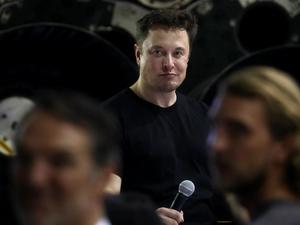
Everyone seems to be jumping on the artificial intelligence bandwagon now, inspired by new tools that create stories, pictures and software code quickly from a few words of text.
But the Federal Trade Commission this week issued a warning about making exaggerated or false claims about AI.
"Marketers should know that — for FTC enforcement purposes — false or unsubstantiated claims about a product’s efficacy are our bread and butter," Michael Atleson, an attorney for the FTC's division on advertising practices, wrote in a blog post on Monday.
Much of what is being floated around AI is about products or services that aren't yet ready to be offered to the public. Microsoft Corp. has demonstrated what adding OpenAI's ChatGPT to its products can do, although mistakes this has generated has also shown that it's not quite ready for primetime.
Google LLC, Meta Platforms Inc. and Elon Musk have all talked about AI projects they are working on, and numerous others have touted that they are adding, or already use, AI in their products and services.
Atleson wrote that "the fact is that some products with AI claims might not even work as advertised in the first place. In some cases, this lack of efficacy may exist regardless of what other harm the products might cause."
He outlined four specific areas that the FTC is watching:
- Exaggerated claims about what a company's AI product can do: In certain cases, he said some may even be claiming their AI can do something that no AI or automated technology is capable of doing right now. "For example," he wrote, "we're not yet living in the realm of science fiction, where computers can generally make trustworthy predictions of human behavior. Your performance claims would be deceptive if they lack scientific support or if they apply only to certain types of users or under certain conditions."
- False claims that a company's AI can outperform what is done without using AI: "You need adequate proof for that kind of comparative claim... and if such proof is impossible to get, then don’t make the claim," Atleson warns.
- Risky business: Businesses need to accept responsibility for what they sell, the FTC attorney said. "If something goes wrong – maybe it fails or yields biased results – you can’t just blame a third-party developer of the technology. And you can’t say you’re not responsible because that technology is a 'black box' you can’t understand or didn’t know how to test.
- Is there really any AI in there? Using AI to develop a product doesn't justify calling in "AI-powered," Atleson warns. "In an investigation, FTC technologists and others can look under the hood and analyze other materials to see if what’s inside matches up with your claims," he said.
People have been primed for the inevitability of all-powerful artificial intelligence by numerous books, stories and movies, according to Atleson.
"Is it any wonder that we can be primed to accept what marketers say about new tools and devices that supposedly reflect the abilities and benefits of artificial intelligence?" he asks. But he also warns that the FTC is watching and ready to act when businesses promise more than they deliver.








